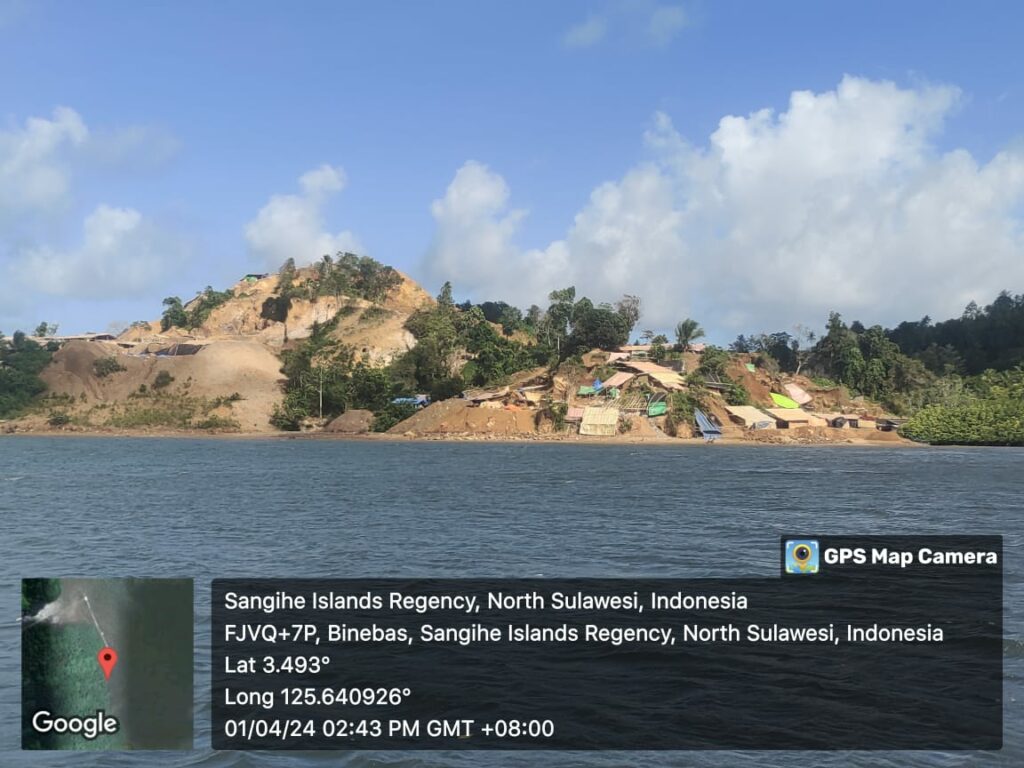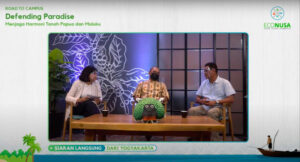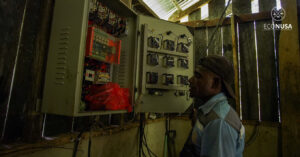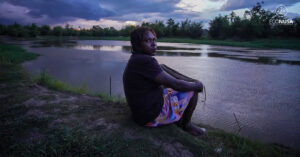
In the Sangihe Islands, a small archipelago located in North Sulawesi Province, the lives of its people have long been deeply intertwined with the sea. The Sangihe community, known as “master seafarers,” depends heavily on marine resources for their daily livelihood. More than a source of sustenance, the sea is an integral part of their cultural identity and heritage. However, this way of life is now under threat due to the destructive impact of gold mining operations on the marine ecosystem.
Sangihe fishers typically set out to sea aboard pumpboats—traditional boats adapted from Filipino designs. As daily fishers, they usually go out in the morning and return in the afternoon, averaging four to six trips per week. Their main catches include skipjack tuna (deho in the local dialect), grouper, snapper, and scad (malalugis), which form the basis of their daily consumption.
In recent years, however, their livelihood has been increasingly disrupted by the entry of mining activities on their small island. “We used to fish close to shore, and the catch was sufficient for our needs. Now, we must go farther out, and even then, we catch less and less,” said Desmon Sondak, a fisher from Bulo Village.
Read Also: A Travel Note: Biodiversity Survey in Kaprus Village
Mining activities have led to the disposal of waste soil into the sea, degrading the quality of the water that sustains the fishers. This sedimentation has clouded the water, damaged coral reefs, and degraded mangroves and seagrass beds that are critical habitats for marine life. As a result, fish populations in these areas have declined dramatically.
“The sea is now murky, and it’s getting harder to find fish,” shared Venetsia, a fisher from Bowone Village. “We’re worried that if this continues, the fish we catch may no longer be safe to eat,” she added.
The situation has already impacted public health. Several residents have reportedly suffered poisoning after consuming contaminated shellfish. “After that incident, we became afraid to eat shellfish from around the island,” Venetsia said with concern.
For fishers like Desmon and Venetsia, the presence of mining operations not only threatens the environment but also their health and livelihood. “Our lives depend on the sea, and now we feel endangered. The ocean that once gave us life is now bringing us harm,” they said.
In response, the community has undertaken numerous efforts to resist the gold mining operations, including mediation attempts and filing a lawsuit against the company in the Supreme Court. The Court ruled in favor of the people of Sangihe, revoking the business permit of PT Tambang Mas Sangihe (TMS). This decision reinforced a prior ruling by the Administrative High Court, which had annulled the Minister of Energy and Mineral Resources’ decree authorizing PT TMS’s production operations. Despite the legal victory, mining activities continue on the island. PT TMS has since partnered with local firms CV Mahumu Hebat Sejahtera and PT Putra Rimpulaeng Persada.
Read Also: Ship Mooring: A Strategic Step for Preserving the Banda Sea and Supporting Sustainable Tourism
Jull Takaliuang, an activist from the Save Sangihe Island Coalition (SSI), expressed firm opposition to mining on the island. “Nature has already provided everything the Sangihe people need. These mining companies come only to exploit and destroy it,” Jull stated. Her voice echoes the widespread anxiety among the Sangihe community, who feel their future is at serious risk.
For Desmon and his fellow fishers, the fight to preserve their way of life is also a fight for the next generation. “We want our children and grandchildren to be able to live off the same sea as we do. That’s what we’re fighting for,” he asserted.
The lives of Sangihe fishers reflect a harsh reality—how a community so intimately connected with nature must struggle to defend its essential resources. The people of Sangihe are not only fighting for today but also for the future of their descendants, who deserve to inherit a clean and thriving sea.
They hope that the natural environment that has sustained them for generations will remain intact. For them, the future of the Sangihe Islands lies in maintaining a harmonious relationship with nature—something that can only be realized if mining operations cease to endanger their vital ecosystems.




